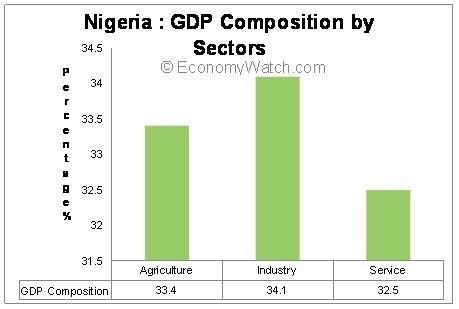Nigeria's Mixed Economy
Having the largest population and economy in Africa, Nigeria is considered to be an emerging global power. With the twenty first largest economy in the world, the "Giant of Africa" is also considered an emerging market by the World Bank.
Attaining a stable government less than two decades ago, and is recognized as having one of the most corrupt governments, Nigeria clearly does not sit next to North Korea on the Continuum of Mixed Economies. With a history of coup d'états by the military, the government is now in control, however it is quite weak. According to online article "Nigeria Economic Structure" from Economy Watch,
Nigeria’s economic structure suffers from a lack of infrastructure and poor regulation related to foreign and private investments.Nigeria's government is responsible for the lack of infrastructure, which shows the lack of government control. Nigeria's economy relies heavily on oil and natural gas exports, creating eighty-three percent of government revenue. However, there is a lot of corruption within the oil industry (read more about this here). Agriculture accounts for two thirds of employment and is responsible for nearly twenty-seven percent of the country's GDP.

There are over 300 tribes in Nigeria which contribute to the the traditional style economy (read more here). All of the different traditions and languages make it difficult for tribes to communicate and relate to one another.
Nigeria's mixed economy lies closer to a market economy than a command because of the human capital within agriculture and the oil trade industry. Traditional aspects of Nigeria also contribute to the economy, however they are not as prominent.
No comments:
Post a Comment